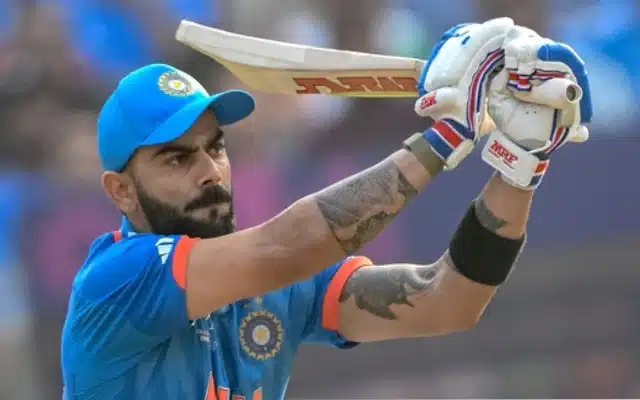Starting on January 11, Team India’s leading batsman, Virat Kohli, will not be available for the first Twenty20 International (T20I) match against Afghanistan. Head coach Rahul Dravid confirmed in a pre-match press conference on Wednesday that the batting stalwart, who made his eagerly anticipated return to the T20I squad in the three-match series, will miss the match for personal reasons. In the semi-finals of the 2022 T20 World Cup, Kohli’s last T20I match was against England. The 35-year-old batter was not the only member of the squad to return; Rohit Sharma will also likely captain the team in the opening game in Mohali.
The return of the team’s star duo was a subject of much speculation, but with so many young players taking on their roles, many fans expressed disapproval of the idea. Ruturaj Gaikwad, Shubman Gill, and Yashasvi Jaiswal are just a few of the batters who have impressed with their strong top order performances over the past year. Furthermore outstanding performances came in the middle from Tilak Varma and Rinku Singh.
However, with the T20 World Cup approaching in June this year and Hardik Pandya and Suryakumar Yadav remaining absent due to injuries, the BCCI top brass placed its faith in the senior duo. Kohli secured the fourth position among the leading run-scorers in the Indian Premier League (IPL) last season, amassing 639 runs in 14 matches. Additionally, he claimed the top spot as the highest run-getter in the preceding T20 World Cup.
With Kohli absent from the first T20I, Gill will likely take over as no.3 in the Indian batting order, as Dravid confirmed Rohit and Jaiswal will open for the side. Tilak and Rinku will likely retain their spots in the XI, but there remains suspense on the first-choice wicketkeeper role, where Jitesh Sharma will be up against Sanju Samson.
The T20I series against Afghanistan will be India’s last assignment in the shortest format before the T20 World Cup; the focus will shift to the five-Test series against England following the Afghanistan T20Is. The Indian Premier League season will likely occur across March, April, and May.
Read More




